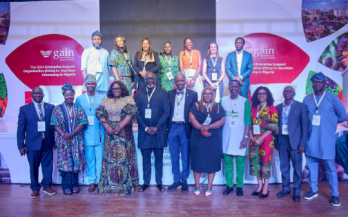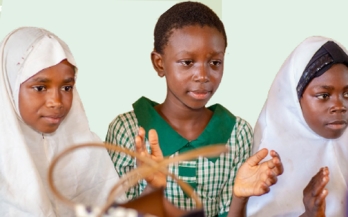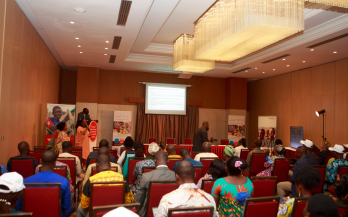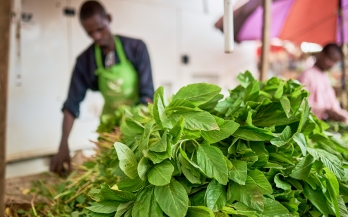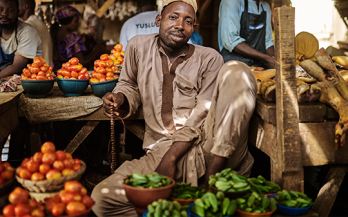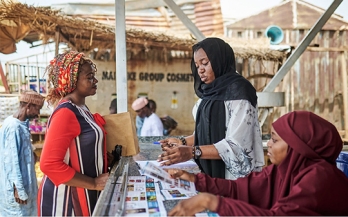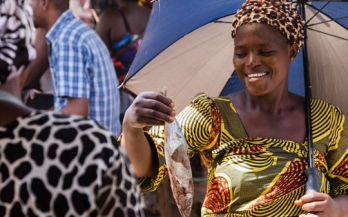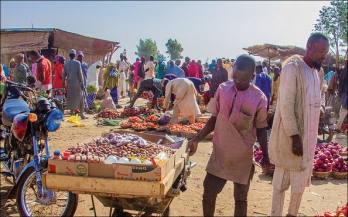- 23/10/2024
On August 29, 2024, the Global Alliance for Improved Nutrition (GAIN) hosted the inaugural Enterprise Support Organisation (ESO) for Nutrition Convening in Nigeria, themed ‘Catalysing Nutritional Innovation: Empowering ESOs to Transform Food Systems.’ This first-of-its-kind convening in Africa brought together over 150 participants, including key stakeholders from academia, the private and public sectors, development agencies, and civil society. The convening focused on the critical role ESOs (entities that provide business development services to businesses) play in transforming food systems by supporting agri-food small and medium-sized enterprises (SMEs) to overcome operational challenges, enhance capacity, and improve nutrition outcomes for underserved populations.
- 07/10/2024
Approximately 11 million Nigerian children, or one-third of the population, experience severe child food poverty, significantly increasing their risk of malnutrition, including a 50% higher likelihood of wasting (UNICEF, 2024).
This mirrors a wider global issue, with 66 million children in low- and middle-income countries, including 23 million in Africa, attending school hungry every day (Bekri et al., 2023). Addressing this urgent crisis requires social protection interventions that combat child hunger and improve nutrition outcomes, such as school feeding programmes.
- 20/08/2024
In response to a request from the Benin Scaling Up Nutrition (SUN) focal point, following the 2022 Joint Annual Assessment (JAA), the establishment and operation of the SUN Business Network (SBN) began with the support from the Global Alliance for Improved Nutrition (GAIN) and CARE through the CASCADE programme. The goal of the programme is to improve food security and reduce malnutrition among at least 5 million women of reproductive age and children under 5 in Benin, Nigeria, Uganda, Kenya, Ethiopia, and Mozambique. The establishment of SBN Benin started with the development of a strategic plan for 2024-2030 and mapping of potential members and partners.
- 12/08/2024
Climate change is a threat to the sustainability of global and national food systems. Unsustainable food systems cannot ensure food and nutrition security or healthy eating patterns. Climate change is already altering agricultural production, food processing, distribution, and conSumption. Its impacts disrupt food supply, limiting people’s access to the diverse, safe, and nutritious foods that make up high-quality diets.
- 18/06/2024
The NFCMS 2021 provides valuable insights and highlights the need for strategic investments in agriculture, nutrition, and food systems. While progress has been made, there is a clear imperative for improved implementation and expanded coverage of nutrition interventions across diverse population groups.
- 18/06/2024
Reducing foodborne disease in low- and middle-income countries (LMICs) is crucial for advancing nutrition, health, and other development goals. The U.S. Agency for International Development (USAID)/Feed the Future’s Evidence and Action Towards Safe, Nutritious Food (EatSafe) program sought to harness consumer demand as a mechanism to improve food safety practices and generate evidence on how to raise consumer demand for safe, nutritious foods in traditional market settings—the main source of food for most LMIC consumers.
- 06/03/2023
As part of EatSafe's effort to evaluate the impacts of food safety behavior change interventions, this report summarized food safety behaviors and behavior drivers across four food safety macro-indices, assessed via structured surveys of vendors and consumers in Nigeria.
- 04/10/2023
Nigeria’s plan for the transformation of its food systems, presented after the landmark 2021 United Nations Food Systems Summit, is proof of its strong political dedication to implementing impactful changes in the country’s food systems.
- 18/08/2023
In this paper, EatSafe examines the process of “making a market” through a case study of vendors and consumers, using in-depth interviews, in Birnin Kebbi, Nigeria. Results demonstrate that market transactions are influenced by a complex interaction of vendors’ norms on competition and collaboration, consumers’ needs for credit amid unpredictable prices and restrictive gender norms, and a “moral economy” that appears to guide market actors’ behavior.
- 14/06/2023
EatSafe interviewed producers, processors, transporters, storage providers, and wholesalers of six food commodities to understand perceptions and actions related to food safety hazards across Nigerian food supply chains.
